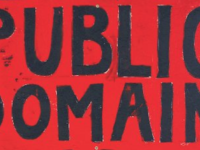As the Standing Committee on Canadian Heritage continues its study on Bill C-10, it has also received some notable submissions from organizations and experts that raise further questions about the wisdom of the bill. One submission not yet posted (but provided to me with the consent to post) comes from Philip Palmer, former Senior General Counsel with the Department of Justice focused on communications law. Palmer spent decades in government focused on telecommunications and competition law issues. His expert opinion is that Bill C-10 is unconstitutional since on-demand streaming services such as Netflix are not inter-provincial undertakings and therefore are not subject to the federal government’s jurisdiction over broadcasters.
Post Tagged with: "guilbeault"
The Law Bytes Podcast, Episode 78: Jennifer Jenkins on What Copyright Term Extension Could Mean for Canada
For years, Canada resisted extending the term of copyright beyond the international standard of life of the author plus 50 years. That appears to have come to an end with the USMCA, which requires an extension. The Canadian government has just launched a public consultation on the issue, identifying several “accompanying measures” to address concerns about the negative impact of term extension. For the many Canadians that participated in the recent copyright review process, the consultation document comes as huge disappointment as it seemingly rejects – with little legal basis – the review’s recommendation on establishing a registration requirement for the additional 20 years that would benefit both creators and the public.
The consultation is currently open until March 12th. Duke University’s Jennifer Jenkins, who is is a Clinical Professor of Law teaching intellectual property and Director of Duke’s Center for the Study of the Public Domain, joins the Law Bytes podcast this week to help sort through the likely implications of copyright term extension for Canada.
The Law Bytes Podcast, Episode 77: The Complexity of Internet Content Regulation – A Conversation with CIPPIC’s Vivek Krishnamurthy
Canadian Heritage Minister Steven Guilbeault seems set to table another bill that would establish Internet content regulations, including requirements for Internet platforms to proactively remove many different forms of content, some illegal and others harmful or possibly even “hurtful.” Few would argue with the proposition that some regulation is needed, but venturing into government regulated takedown requirements of otherwise legal content raises complex questions about how to strike the balance between safeguarding Canadians from online harms and protecting freedom of expression.
Vivek Krishnamurthy, is a colleague at the University of Ottawa, where he is the Samuelson-Gluschko Professor of Law and serves as the director of CIPPIC, the Samuelson-Glushko Canadian Internet Policy and Public Interest Clinic. He joins the Law Bytes podcast to talk about the complexities of Internet content regulation and the risks that overbroad rules could stifle expression online and provide a dangerous model for countries less concerned with online civil liberties.
Beware the Unintended Consequences: Some Warning Signs for Canada from the Australian Government Battle With Facebook
Last year, the Australian government presented Google and Facebook with an ultimatum: if the companies wanted to continue to allow users to link to news articles, they would be required to compensate news organizations. The Australian plan called for the creation of a mandated code that would create a process to determine the price to be paid for the links. Facebook’s response made it clear that if that was the choice – links with mandated payments or no links – it would choose the latter and block Australian news sharing from its service. While some described this as a threat (including Canadian Heritage Minister Steven Guilbeault) or a bluff, it turns out the company was serious.
The Copyright Bill That Does Nothing: Senate Bill Proposes Copyright Reform to Support Media Organizations
The Toronto Star reports that Senator Claude Carignan, a Conservative Senator, plans to introduce a new bill that would amend the Copyright Act to create a new compensation scheme for media organizations by establishing a new collective rights system for the use of news articles on digital platforms. I’ve written extensively about why calls for mandated compensation for linking to news articles on social media sites is an ill-advised policy and how the media organizations themselves are responsible for much of the posting. Heidi Tworek has written about the risks of using IP to address the issue, which she discussed on my Law Bytes podcast (Jeff Elgie of Village Media also appeared on a recent podcast episode to criticize the lobbying campaign for new payments).











